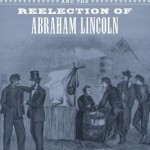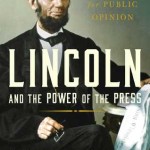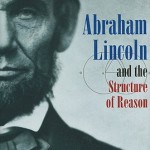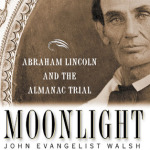I’m science traveling in New Orleans. Somehow I’ve never been to the city before so am chomping at the chance to visit, in part because New Orleans played a role in Abraham Lincoln’s emerging world view. He traveled there twice, both times on a flatboat floating down the Mississippi River just before leaving the family home to set up a life as a young adult. I’ll have more on the trip when I return, but it got me thinking of a book I had read last year. I’m reposting the review of it here to whet your appetite for more. Enjoy.
 Book Review – Lincoln in New Orleans by Richard Campanella
Book Review – Lincoln in New Orleans by Richard Campanella
An exceptionally well researched book recreating Abraham Lincoln’s flatboat trips to New Orleans. Campanella is an expert on New Orleans, and has expanded his expertise upstream to develop a detailed account of Lincoln’s two trips down the Mississippi River. No small feat given that the sum total of all the first person reminiscences of the trips by Lincoln and participants wouldn’t fill a page of text. Campanella’s recreation, like many efforts based on such scant direct information, is not however contrived in the least. On the contrary, the effort he has put into collecting and analyzing fragmented – and often contradictory or dubious – accounts is exemplary.
I would suggest the book is for the serious reader rather those with a casual interest in Lincoln, New Orleans, or the Mississippi River. It is extremely fact-dense, and the writing style is scholarly, yet accessible for thoughtful enthusiasts. Those expecting an exhilarating story of adventure won’t find it, though an adventure it does describe. To me that not only doesn’t take away from the book, it helps define it as scholarship to be taken seriously.
After a short introduction there are only five long chapters. The first explores Lincoln’s father Thomas’ own flatboat trip as a youth, along with setting the stage for Lincoln’s desire to hit the muddy waters himself. “The 1828 Experience” is a massive undertaking; more than 100 pages of detailed research into the timing of his first flatboat trip while still living in Indiana, the building of the boat, the obstacles in the rivers and elsewhere, the arrival and lingering in New Orleans at the end, and the trip back home. Campanella teases apart the disparate accounts, provides a detailed analysis of the attack by slaves, and places Lincoln in the context of the technologically changing times.
Another chapter examines Lincoln’s second flatboat experience in 1831, including analysis of the mill dam story, the crew and timing of departures, and much more. While truncated so as not to repeat the riverine details well covered in the previous chapter, it still tallies about 40 pages. This is followed by a chapter speculating about what Lincoln may have seen and done in New Orleans, framed by extensive actual facts about what was going on there at that time. In his Conclusions chapter Campanella assesses what influences these flatboat voyages may have had on Lincoln’s views of slavery, internal improvements, and political philosophy. On top of all of this Campanella adds two appendices providing wonderful background material on commerce on western rivers and on New Orleans itself during the time period in which Lincoln was developing into the President he would become.
This is an extraordinary book of scholarship that deserves more attention that it has apparently received. It’s not for the casual reader, but it should be for everyone seriously interested in this critical period of Abraham Lincoln’s life.
More Abraham Lincoln book reviews can be read here (scroll down for more).
Check out my Goodreads author page. While you’re at it, “Like” my Facebook author page for more updates!
David J. Kent is the author of Lincoln: The Man Who Saved America, now available. His previous books include Tesla: The Wizard of Electricity and Edison: The Inventor of the Modern World (both Fall River Press). He has also written two e-books: Nikola Tesla: Renewable Energy Ahead of Its Time and Abraham Lincoln and Nikola Tesla: Connected by Fate.
Follow me by subscribing by email on the home page. Share with your friends using the buttons below.



 Climate change has already shown impacts not only on the world’s temperatures but on ocean acidification, sea level rise, and effects on plant and animal migration behaviors, among others. The Dake Page periodically reviews science-related books.It isn’t clear whether the impacts noted in Fire in the Turtle House are related to climate change or some other cause, but it reflects how quickly disruptions can result in catastrophic impacts on wildlife. What follows is a short review of
Climate change has already shown impacts not only on the world’s temperatures but on ocean acidification, sea level rise, and effects on plant and animal migration behaviors, among others. The Dake Page periodically reviews science-related books.It isn’t clear whether the impacts noted in Fire in the Turtle House are related to climate change or some other cause, but it reflects how quickly disruptions can result in catastrophic impacts on wildlife. What follows is a short review of  Historian Richard Wightman Fox employs a unique concept in discussing Abraham Lincoln: Lincoln’s body. His body – the physical, the figurative, the aura, and the memory – is used to trace how he was perceived at the time and during several periods since then to the present day. In doing so, Fox has successfully provided a mirror into not only Abraham Lincoln, but ourselves.
Historian Richard Wightman Fox employs a unique concept in discussing Abraham Lincoln: Lincoln’s body. His body – the physical, the figurative, the aura, and the memory – is used to trace how he was perceived at the time and during several periods since then to the present day. In doing so, Fox has successfully provided a mirror into not only Abraham Lincoln, but ourselves. As a writer it’s always interesting to read other people’s writing, especially when they are people I know. Of course, interesting could mean either good or bad depending on the quality of the writing, but it seems I’ve been lucky because the books I’ve read by friends and acquaintances have been wonderful. That includes works by
As a writer it’s always interesting to read other people’s writing, especially when they are people I know. Of course, interesting could mean either good or bad depending on the quality of the writing, but it seems I’ve been lucky because the books I’ve read by friends and acquaintances have been wonderful. That includes works by  An exceptional scholarly treatment. Author Fornieri examines the age-old question of what makes Abraham Lincoln great. His answer lies in the belief that Lincoln was a philosopher statesman, which he defines as being understood in terms of six dimensions of political leadership.
An exceptional scholarly treatment. Author Fornieri examines the age-old question of what makes Abraham Lincoln great. His answer lies in the belief that Lincoln was a philosopher statesman, which he defines as being understood in terms of six dimensions of political leadership.
 Harold Holzer shows why he is considered the leading Abraham Lincoln expert as he adds to his tremendous legacy of scholarship. The focus of this latest book is Lincoln’s relationship with the press. It’s important to know that the newspapers of the day were highly partisan and often closely aligned with a particular party or candidate. They were also fiercely antagonistic to each other and to the opposing party. If a politician didn’t have a good relationship with the press, they had no compunction to viciously and directly attacking him, and in many cases, making things up.
Harold Holzer shows why he is considered the leading Abraham Lincoln expert as he adds to his tremendous legacy of scholarship. The focus of this latest book is Lincoln’s relationship with the press. It’s important to know that the newspapers of the day were highly partisan and often closely aligned with a particular party or candidate. They were also fiercely antagonistic to each other and to the opposing party. If a politician didn’t have a good relationship with the press, they had no compunction to viciously and directly attacking him, and in many cases, making things up. The main thesis of this book is that Abraham Lincoln’s greatness came from his mastery of the “six-books of Euclid” geometry, and the subsequent application of the six elements of Euclid into his logic, reasoning, and speeches.
The main thesis of this book is that Abraham Lincoln’s greatness came from his mastery of the “six-books of Euclid” geometry, and the subsequent application of the six elements of Euclid into his logic, reasoning, and speeches. Most people only think of Abraham Lincoln as our 16th President, but prior to that Lincoln had a long career as a lawyer. Much of his legal work was mundane, but he did occasionally get involved in some high profile cases that showed his logic and guile.
Most people only think of Abraham Lincoln as our 16th President, but prior to that Lincoln had a long career as a lawyer. Much of his legal work was mundane, but he did occasionally get involved in some high profile cases that showed his logic and guile. Abraham Lincoln grew up reading everything he could get his hands on in the largely illiterate western frontier of 19th century America. So it’s no small irony that estimates of books written about Abraham Lincoln run over 15,000 volumes. Some day I’ll count up the number of books about Lincoln I’ve read (I’m guessing over 200) but for now I’ll give you three quick reviews of books related to Lincoln’s own love of books. All of these and more can be found on
Abraham Lincoln grew up reading everything he could get his hands on in the largely illiterate western frontier of 19th century America. So it’s no small irony that estimates of books written about Abraham Lincoln run over 15,000 volumes. Some day I’ll count up the number of books about Lincoln I’ve read (I’m guessing over 200) but for now I’ll give you three quick reviews of books related to Lincoln’s own love of books. All of these and more can be found on 






